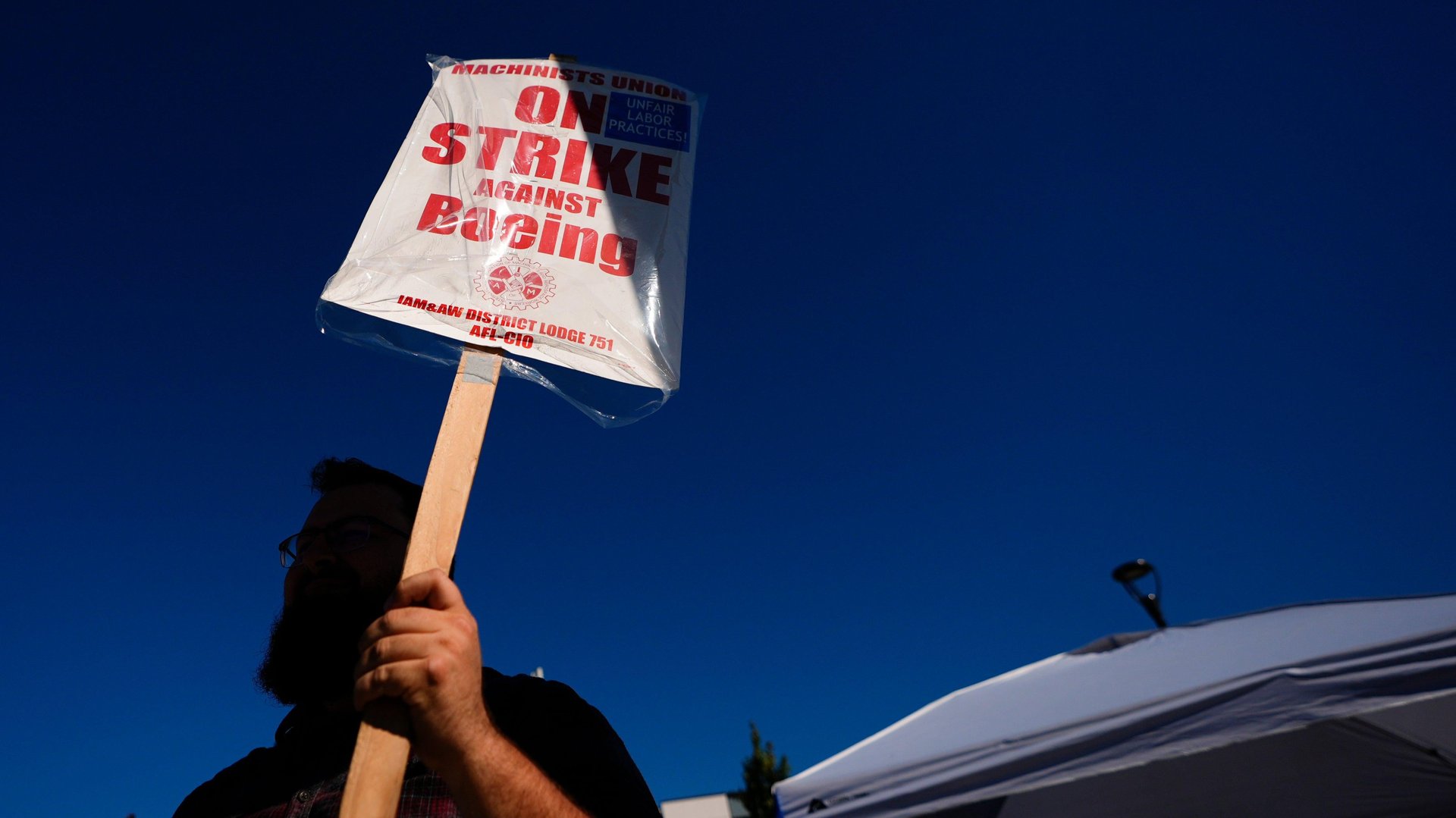Striking Boeing workers reject a new contract offer, extending a costly month-long strike
There had been a glimmer of hope over the weekend when Boeing and machinist union leaders reached a preliminary agreement

Boeing’s (BA) more than month-long machinist strike is not over. Members of the International Association of Machinists and Aerospace Workers (IAM), the union representing the striking employees, voted down the company’s latest offer on Wednesday.
Suggested Reading
Sixty-four percent of the union voted against the deal, which fell short of workers’ demands. It had offered a 35% raise and was an improved version of the troubled plane maker’s “best and final offer” for a 30% bump.
Related Content
“We have made tremendous gains in this agreement in many areas our members said were important to them,” IAM 751 President Jon Holden said Wednesday evening. “However, we have not achieved enough to meet our members’ demands.”
Boeing stock is down by more than 2% in pre-market trading Thursday morning, adding to an almost 40% decline this year amid a series of issues.
There had been a glimmer of hope over the weekend when the company and union leaders reached a preliminary agreement, thanks partly to an intervention from Acting Secretary of Labor Julie Su. Previously, Boeing had decided to step away from negotiations. When the IAM called its previous bid a “blatant show of disrespect,” the company fired back that the union was not bargaining in good faith.
Two key sticking points have been the size of the raise — the IAM has been seeking a 40% wage increase — and the restoration of Boeing’s pension, which was cut as a benefit for new employees a decade ago. Though the latest contract did not bring the retirement plans back, it did provide a boost for workers who already have their pensions secured.
“We have been feverishly working to find a solution that works for the company and meets our employees’ needs,” Boeing CEO Kelly Ortberg said in prepared remarks Wednesday as the company reported brutal earnings.
The lack of a resolution makes Boeing’s immediate future very difficult to parse.
After a pair of fatal plane crashes in 2018 and 2019, Boeing had been spending the following years restoring its public trust, output, and revenues. Then, in January, a piece of fuselage fell off a plane just when the company was planning to begin its comeback effort in earnest. The Federal Aviation Administration (FAA) imposed a continuing production rate cap so Boeing could address quality-control issues, which meant that the company has been sending billions of dollars in cash out the door for a while without the lost income.
Making matters worse, the strike paused waylaid the majority of the plane models making up Boeing’s order backlog. Now, it has plans to lay off 10% of its workforce and raise tens of billions of dollars in cash to fortify its coffers amid lost revenue, but securing that funding was in part tied to ending the strike.
The company’s much-needed investment-grade credit rating hangs on by a thread, and losing it would make the path to recovery steeper and more expensive should Boeing need to borrow more money along the way. Fitch Ratings said last week that Boeing’s cash-raising actions “support liquidity amidst continued operational challenges” — but only if Boeing can reach an agreement for its machinists to be back on the job by the end of the year.